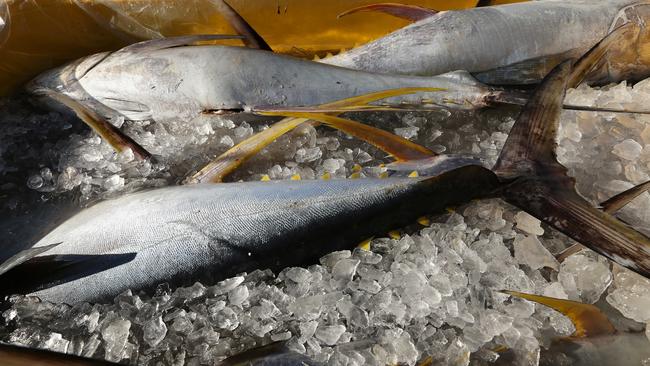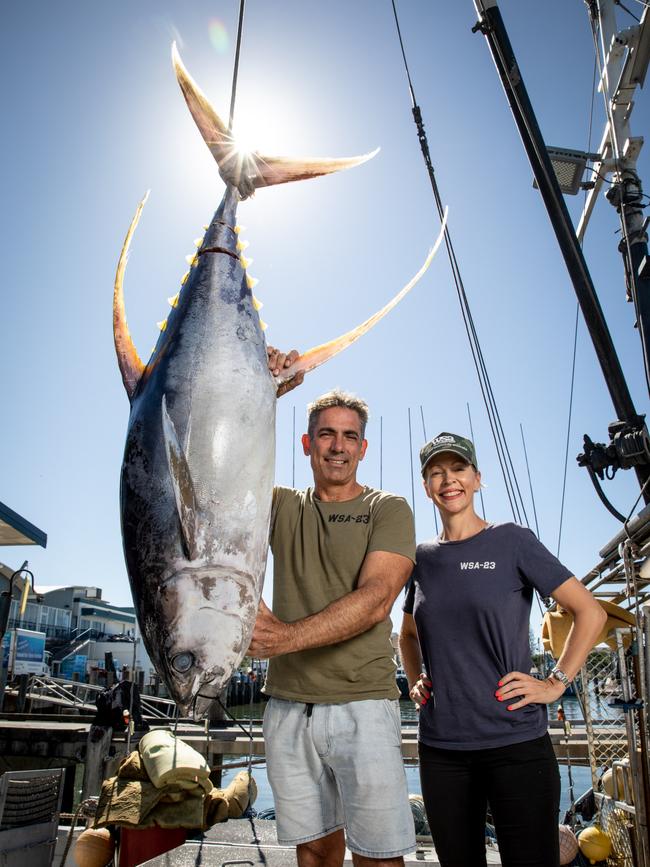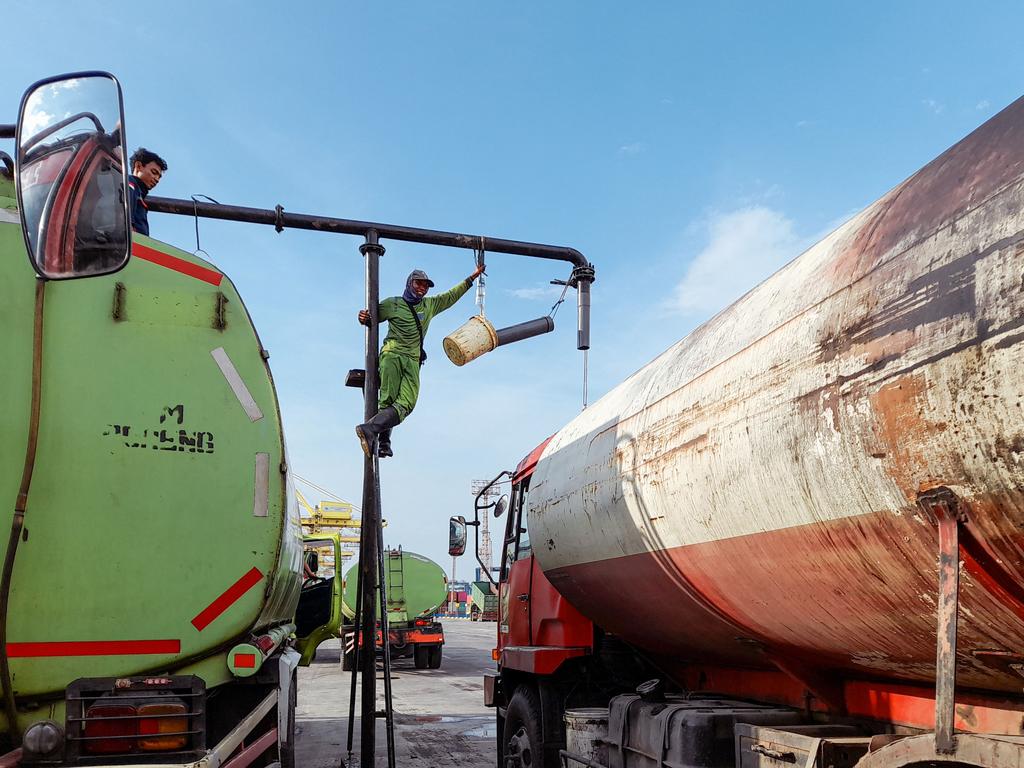George Costi-backed Longreach Maris aims to make a splash with fishery quota fund
George Costi-backed Longreach Maris wants to shed light on the opaque $22bn market for Australian fishing rights, through an investment fund.

George Costi-backed Longreach Maris wants to shed light on the opaque $22bn market for Australian fishing rights through a fund giving investors access to the wild-caught industry and fishery quota.
The fund focuses on buying, leasing and sub leasing the rights to fishing quota known as individual transferable quota, which are limited in supply, are tradeable and are issued and regulated by the federal and state governments to protect against overfishing. Authorities closely monitor stocks of each species.
Longreach Maris estimates the market value of Australia’s ITQ sector is $22bn, across wild-caught and farmed seafood. The fund is seeking to address issues in a fragmented market for ITQs which is also facing challenges around succession planning, cash flow disruptions during Covid-19 and a prohibitive cost to entry.
Longreach Maris is focusing on setting up an alternative asset class of ITQs for wild-caught species with the biggest proportion of its portfolio reflecting southern rock lobster, sardines, abalone and yellowfin tuna. Australia has the world’s third-biggest fishing zone and the ITQ sector has already captured the interest of foreign investors, private equity and high net worth investors.
Longreach Alternatives – which is the parent entity of Longreach Maris – has $2.2bn in funds under advice and management across four strategies. They span private debt, energy, the wild-caught fisheries and global equity investment management driven by artificial intelligence.
Longreach Alternatives was founded in 2016 by Samuel Mann and Andrew Flitcroft.
The Longreach Maris strategy has tapped some well-known names in the local seafood industry as it seeks to ramp up its fund.
Longreach Maris counts Mr Costi – a seafood industry veteran and founder of De Costi Seafoods – as its investment committee chairman and a member of its ITQ advisory committee.
The Abalone Council Australia’s chief Dean Lisson is also on the advisory committee, as is industry stalwart and Saltwater Seafoods founder Nick Geralis.

Longreach Maris boss and investment chief Andrew Rado said the fund’s strategy would help to keep more ITQs in Australian hands while also aiding succession planning. “With this capital we can provide long-term job security or long-term access to ITQs with a long-dated lease to young fishers in regional communities,” he added.
It may be a hard slog to convince the fishing industry and investors to get behind the strategy.
Risks listed in the fund’s information memorandum include the prospect of increased competition for Longreach Maris in the market and risks of environmental issues such as pollution impacting fish populations and breeding cycles.
Mooloolaba Queensland-based Walker Seafoods – which has 50 direct employees and counts Neil Perry and high-end restaurant Tetsuya’s among its customers – has entered an initial five-year leaseback arrangement with Longreach Maris for its ITQ.
Walker managing director Heidi Walker said after export markets were hit during the pandemic the new arrangement freed up capital and allowed the business to focus on a growth strategy.
“It‘s very exciting for the whole sector, the whole fishing industry, because there is a real risk to the industry of people exiting, other people not being able to enter,” she said. “We can possibly now look at another vessel or a bigger processing facility, or other areas involving value adding with a product.”
Longreach Alternatives managing director Sam Edwards said the fishing rights strategy has an estimated capacity of $1bn, or about 4.5 per cent of Australia’s ITQ industry. There is no target time frame for the fund to reach capacity.
He noted the Covid-19 challenges to the hospitality industry had presented a “real conundrum” for some in the fishing industry, as they assessed how to retain their ITQ as well as their home during lockdowns and other challenges.
Mr Edwards also said the fund would manage volatility in quota, as certain species saw total allowable commercial catch reduced or increased by governments, by having a diversified portfolio.
The agriculture departure expects the gross value of Australian fisheries and aquaculture production to recover in 2021-22, increasing by 10 per cent to $3.55bn or the highest level since 2002-03. But expectations are for growth of just 0.4 per cent annually for Australian fisheries and aquaculture from 2022-23 to 2026-27.
The Longreach Maris fund currently manages about $95m, excluding a $75m institutional mandate from a superannuation fund which is still part of the overall strategy. Prospective investors would need to be mindful of a lockup period noted in the fund’s document, which means withdrawals are not allowed within 18 months of an investor being issued units in the fund.
Koda Capital is a backer of the fund on behalf of its clients.
Rising inflation has investors on alert as they assess price pressures across the economy and how an imminent rate hiking cycle will weigh on returns.
Koda’s investment strategy group partner Jason Coggins said the ITQ market was attractive as it had a low correlation to traditional asset classes and provided protection against inflation.
“This (fund) is providing a real yield above inflation, and supporting local communities in a sector (agriculture) which people kind of understand … but have traditionally found it quite difficult to access,” he said. “We wanted to find a part of agriculture that at the moment is not so well bid, and there isn’t as much capital chasing these assets yet.”
Mr Coggins also highlighted the fund’s environmental, social and governance credentials.
The fund targets total annual returns of between 8 per cent to 12 per cent, reflecting yield and capital growth buoyed by the value of the ITQs. The yield is paid to investors semi-annually.
Longreach Maris’s mandatory due diligence requirements include visiting fishers and conducting background checks, using independent ITQ valuers and external law firms for sale, purchase and lease agreements.
The fund charges a management fee of 1.35 per cent, and there is potential for a performance fee of up to 20 per cent to be paid if specific return requirements and hurdles are met. Ironbark Asset Management is the trustee, while KPMG is the auditor.








To join the conversation, please log in. Don't have an account? Register
Join the conversation, you are commenting as Logout